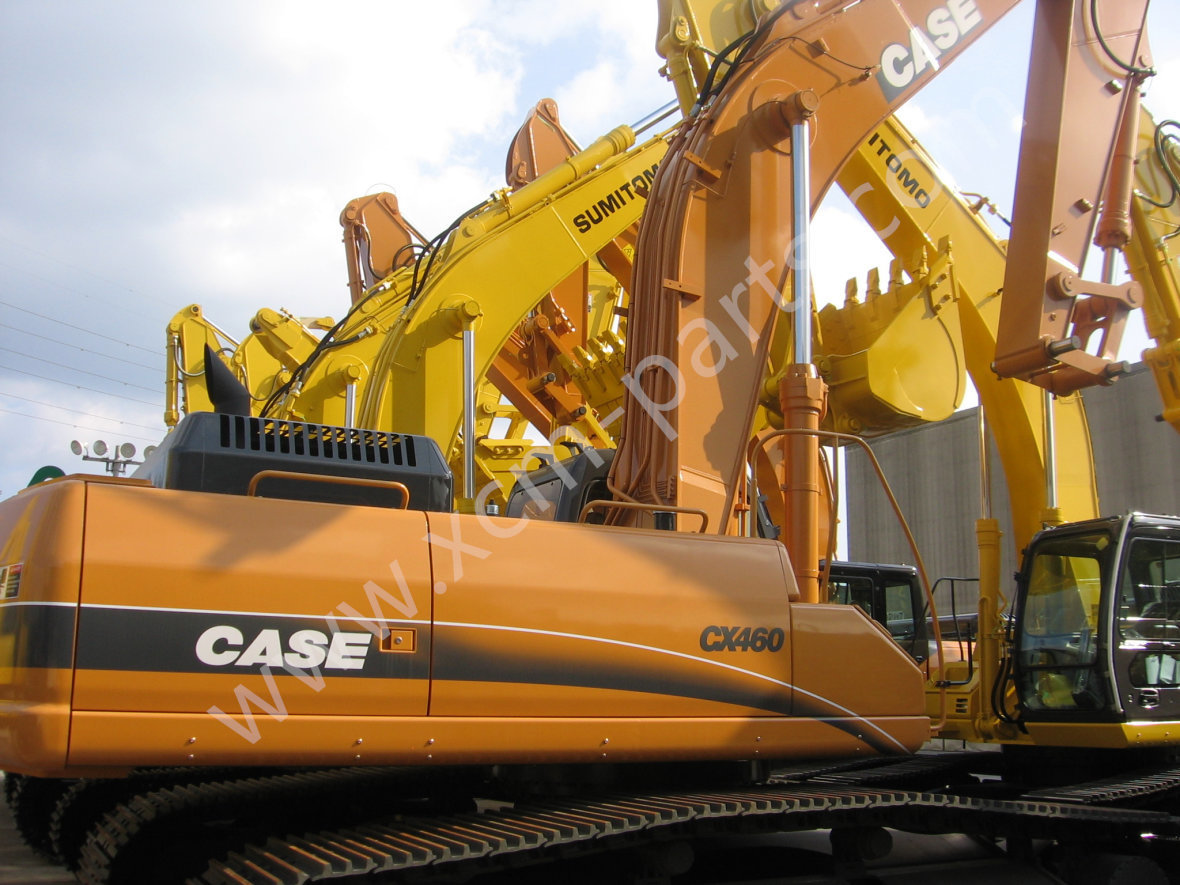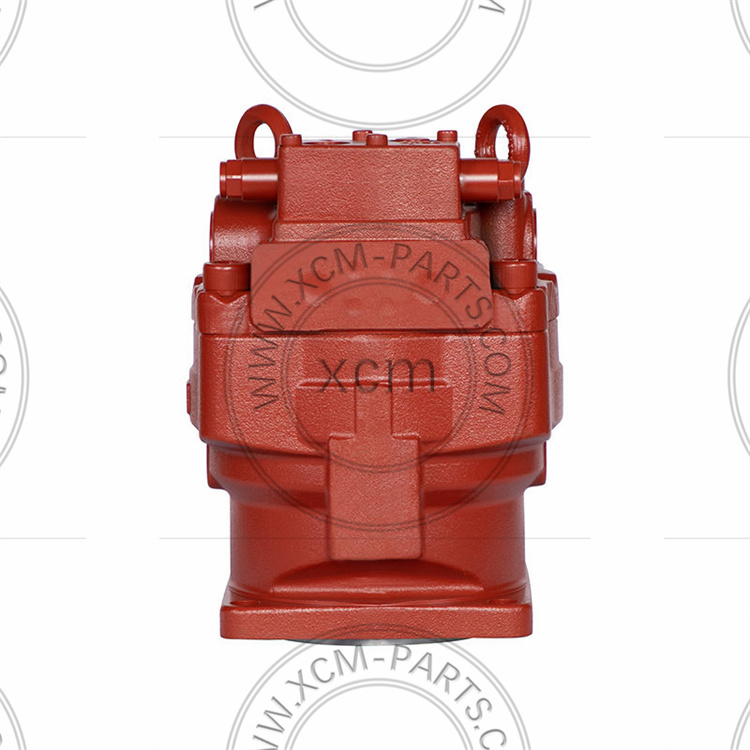19
2025
-
01
Breaking Ground: The Future of Pump Excavators in Engineering Machinery
Breaking Ground: The Future of Pump Excavators in Engineering Machinery
The ever-evolving landscape of engineering machinery has seen remarkable advancements, particularly with the advent of pump excavators. These powerful machines are not just transforming the construction site; they are also setting new standards for efficiency, safety, and sustainability. As industries strive for more robust and versatile equipment, pump excavators are at the forefront, paving the way for future innovations in the field. In this article, we delve deep into the future of pump excavators, exploring their technology, applications, and the trends shaping their development.
Table of Contents
- 1. Overview of Pump Excavators
- 2. Cutting-Edge Technology in Pump Excavators
- 3. Diverse Applications of Pump Excavators in Engineering
- 4. Advantages of Pump Excavators in Construction
- 5. The Role of Pump Excavators in Sustainable Engineering
- 6. Emerging Trends in Pump Excavator Technology
- 7. The Future of Pump Excavators in Engineering Machinery
- 8. FAQs About Pump Excavators
- 9. Conclusion
1. Overview of Pump Excavators
Pump excavators are a specialized type of excavation machinery designed to handle both digging and pumping tasks efficiently. These hybrid machines are equipped with high-capacity pumps and robust excavation tools, allowing them to perform tasks that would typically require separate equipment. The integration of these functions not only enhances productivity but also streamlines operations on construction sites.
Understanding the **mechanics** of pump excavators is crucial for any engineering professional. They operate on principles similar to traditional excavators, but with the added ability to pump fluids or handle slurry materials. This versatility makes them invaluable in various applications, from construction to environmental remediation.
2. Cutting-Edge Technology in Pump Excavators
The future of pump excavators is heavily influenced by advancements in technology. Here are some critical innovations that are shaping these machines:
2.1. Automation and Robotics
Automation is revolutionizing the way pump excavators operate. With the integration of **robotics and AI**, these machines can perform complex tasks with minimal human intervention. Automated systems enhance precision, reduce errors, and increase safety on-site. For instance, autonomous pump excavators can navigate through challenging terrains, perform excavation tasks, and adjust their strategies in real-time based on environmental feedback.
2.2. Telemetry and Remote Monitoring
Modern pump excavators come equipped with telemetry systems that allow for real-time monitoring of their performance. This technology provides valuable data regarding fuel consumption, operational efficiency, and maintenance needs. Operators can access this information remotely, enabling more informed decision-making and timely maintenance interventions.
2.3. Enhanced Hydraulic Systems
The efficiency of pump excavators is significantly boosted by advanced hydraulic systems. These systems offer better control over the machine’s functions, allowing for precise movements and adjustments. Innovations such as **variable displacement pumps** and **closed-loop hydraulic circuits** improve overall performance and reduce fuel consumption, making pump excavators more economical to operate.
3. Diverse Applications of Pump Excavators in Engineering
The versatility of pump excavators makes them suitable for a wide array of applications. Below are some notable uses:
3.1. Construction Projects
In construction, pump excavators are utilized for tasks such as excavation, grading, and site preparation. Their ability to pump out water or slurry quickly makes them ideal for projects in wet conditions or areas with high groundwater levels.
3.2. Environmental Remediation
Pump excavators play a critical role in environmental cleanup efforts. They can efficiently extract contaminated materials while simultaneously managing the disposal of hazardous fluids. This dual capability is essential for restoring contaminated sites and protecting public health.
3.3. Utility Installation and Maintenance
For utility companies, pump excavators facilitate the installation and maintenance of underground utilities. Their ability to dig and pump simultaneously accelerates the installation process while minimizing disruption to surrounding areas.
3.4. Mining Operations
In mining, these machines are invaluable for handling both solid and liquid materials. Pump excavators can easily maneuver in rugged terrains, making them ideal for extracting resources from difficult-to-reach locations.
4. Advantages of Pump Excavators in Construction
Integrating pump excavators into construction projects offers several advantages:
4.1. Increased Efficiency
The combination of digging and pumping capabilities results in significant time savings. This efficiency translates to lower labor costs and faster project completion times.
4.2. Cost-Effectiveness
By reducing the need for multiple pieces of equipment, pump excavators lower overall operational costs. Their advanced hydraulic systems also contribute to fuel savings, making them a financially savvy option for businesses.
4.3. Enhanced Safety
With automation and remote monitoring, the risk of accidents is minimized. Operators can control pump excavators from a safe distance, reducing exposure to hazardous situations.
5. The Role of Pump Excavators in Sustainable Engineering
As the industry shifts towards sustainability, pump excavators are becoming increasingly important in environmentally responsible projects. Here are some key aspects of their role:
5.1. Reduced Environmental Impact
By efficiently managing waste materials and minimizing disruption to the surrounding environment, pump excavators help mitigate the ecological footprint of construction projects. Their ability to pump out contaminated materials quickly allows for faster remediation efforts.
5.2. Energy Efficiency
Modern pump excavators are designed to consume less fuel while delivering high performance. Advances in hydraulic technology and engine efficiency contribute to lower emissions and reduced energy consumption.
6. Emerging Trends in Pump Excavator Technology
The future of pump excavators is bright, driven by emerging trends that promise to enhance their capabilities and applications.
6.1. Green Technologies
There is a growing emphasis on developing eco-friendly pump excavators. Manufacturers are exploring hybrid and electric models, which offer reduced emissions and lower noise levels.
6.2. Advanced Data Analytics
The integration of big data and analytics into pump excavators is becoming more prevalent. This trend allows operators to optimize machine performance based on real-time data, leading to improved maintenance schedules and operational strategies.
6.3. Smart Connectivity
With the rise of the Internet of Things (IoT), pump excavators are becoming increasingly connected. Smart connectivity enables seamless communication between machines, allowing for coordinated operations and enhanced productivity on construction sites.
7. The Future of Pump Excavators in Engineering Machinery
As we look ahead, the future of pump excavators in engineering machinery appears promising. Anticipated developments include:
7.1. Enhanced Automation
Further advancements in automation technology will likely lead to fully autonomous pump excavators capable of operating independently. This evolution will transform how construction and engineering projects are managed.
7.2. Integration with Drones
The potential for integrating pump excavators with drone technology could enhance construction site monitoring and assessment. Drones can provide real-time aerial views, allowing operators to make informed decisions on machine deployment.
7.3. Customization and Adaptability
Future pump excavators will likely focus on customization. Manufacturers may offer modular designs that allow operators to select specific features based on their project needs, enhancing versatility and functionality.
8. FAQs About Pump Excavators
8.1. What are pump excavators used for?
Pump excavators are used for excavation, grading, and pumping tasks in various applications, including construction, environmental remediation, and utility installation.
8.2. How do pump excavators improve efficiency?
They combine the functions of digging and pumping, reducing the need for multiple machines and streamlining operations, which leads to faster project completion times.
8.3. Are pump excavators environmentally friendly?
Yes, modern pump excavators are designed to be energy-efficient, reducing emissions and minimizing environmental impact during construction projects.
8.4. What advancements are being made in pump excavator technology?
Advancements in automation, connectivity, and hydraulic systems are enhancing the performance and capabilities of pump excavators, making them more versatile and efficient.
8.5. Will pump excavators become fully autonomous?
With ongoing developments in automation and AI, it is likely that pump excavators will achieve higher levels of autonomy in the future, transforming the construction industry.
9. Conclusion
Pump excavators are not just a passing trend; they represent the future of engineering machinery. As technology continues to advance, these machines will play an increasingly pivotal role in construction and engineering projects. Their versatility, efficiency, and commitment to sustainability make them indispensable tools for modern professionals. By embracing the innovations surrounding pump excavators, we are not only improving operational efficiency but also paving the way for a more sustainable future in engineering and construction.
pump excavator
undefined
The Art of Customizing Crawler Excavator Parts to Improve Performance
The Art of Customizing Crawler Excavator Parts to Improve Performance Table of Contents 1. Introduction to Crawler Excavator Customization 2. Understanding Crawler Excavator Parts 2.1 Types of Crawler Excavator Parts 2.2 The Importance of Customization 3. Customization Techniques for Enhanced Performance 3.1 Upgrading Hydr
Understanding the Function and Importance of Excavator Relief Valves
Excavator relief valves are integral components of hydraulic systems used in various engineering and construction machinery. Their primary function is to regulate and control the pressure within the hydraulic circuits, ensuring the safe and efficient operation of the excavator. When hydraulic pressure exceeds a predetermined limit, the relief valve opens to divert excess fluid, preventing potentia
Breaking Ground: The Future of Excavator Motors in Construction
Breaking Ground: The Future of Excavator Motors in Construction Table of Contents 1. Introduction to Excavator Motors 2. Historical Overview of Excavator Technologies 3. Current Technological Advancements in Excavator Motors 4. Sustainability in Excavator Motor Design 5. Impact of Automation on Excavator Performance 6. Future Trends in Excavator Motors 7. Challenges Fa















